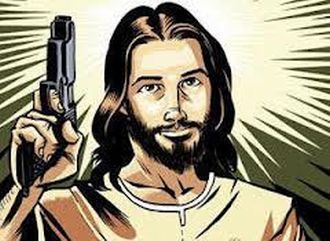Our congregation produces a quarterly newsletter. Here is my upcoming piece for the Winter edition.
Sisters and Brothers in Christ,
As I write this it is a
beautiful, autumn day. Some trees still cling to brightly colored leaves.
Thanksgiving is still two weeks away, but one of my neighbors already has up
his Christmas lights. And we’ve had the first salvo in the annual “War on
Christmas” silliness, thanks to those atheists
at Starbucks who removed the snowflakes, those ancient symbols of
Christ’s birth, from their seasonal cups.
I’m not much bothered by early
Christmas decorations, or by what retailers put on their cups or store
decorations. I’m not offended if the stores are already playing Christmas music.
Surprised and amused, perhaps, but not much more. I do, however, sometimes lament
the loss of Advent. I don’t suppose that stores or malls ever did Advent, but I
do miss it when it fades away in churches.
The Presbyterian Book of Common Worship has a liturgy for
lighting the Advent candle on the four Sundays prior to Christmas. It begins, “We
light this candle as a sign of the coming light of Christ. Advent means coming.
We are preparing ourselves for the days when…” What follows is a list of that grows longer each week and speaks of swords beaten into plowshares, nations
no longer learning war, wolves making peace with lambs, the desert blooming, and
a young woman who bears a child named “God with us.”
“Advent means coming.” It’s a coming
that is not of our making. We can prepare. We can work to make it more visible,
but only God can bring the promise. That means that Advent is also about
waiting.
I am not very good at waiting. I’m
impatient and sometimes impulsive. I’m even worse at waiting for God. I am very
much a product of our culture that values busyness and productivity. But God’s
ways are very different from mine, and over the years I’ve discovered that a
deep experience of God requires prayer and stillness and silence and waiting.
Advent requires waiting. It is
an active, expectant sort of waiting, but it is waiting nonetheless. Yet too
often we rush toward Christmas, trying to manufacture joy and cheer, trying to
make Advent into one long and extended Christmas celebration.
I’m not suggesting that we
should be dour and somber until Christmas Eve, or that we hold all the
Christmas carols in reserve until that day. (I would prefer we not pack up the
carols so quickly after Christmas.) I
do, however, think it important to cultivate the spiritual disciplines of
waiting and of preparing for what God will do. Expectant and faithful waiting
that trusts in God’s promises is crucial to living as the body of Christ in
Advent and throughout the year.
Some years ago John Buchanan,
then pastor at Fourth Presbyterian in Chicago and editor of The Christian Century, wrote a piece
entitled “Deepening Darkness.” In it he described the busyness of the holidays on
the Magnificent Mile portion of Michigan Avenue where the church sits. “The
sidewalks are filled with shoppers. Buses arrive daily from the suburbs and
nearby states, disgorge their shoppers in the morning and pick them up,
exhausted and heavily laden, in the evening. We sit in the middle of it all
with the somber purple color and sing hymns in a minor key.” (The Christian Century, 11-28-2006)
I wonder what sort of witness a faithful
observance of Advent might offer to our busy, hectic and anxious world.
Grace, peace, a blessed Advent,
and a Joyous Christmas,




